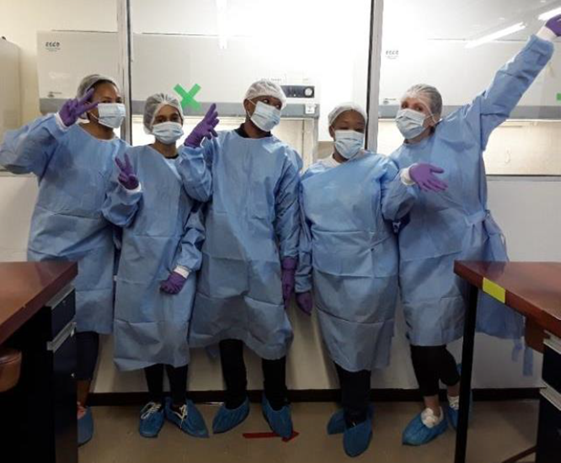
By Razeeya Khan, Clinical Pharmacy lecturer, University of the Witwatersrand, South Africa
I am Razeeya Khan, a lecturer in the Clinical Pharmacy division at the University of the Witwatersrand in South Africa. I am passionate about furthering oncology pharmacy education in South Africa, and at Wits University we have made strides to introduce oncology pharmacy into our undergraduate and postgraduate curriculum.
Training for oncology pharmacists in South Africa is usually hands on, received from peers while ”on the job.” Learning is thus a transfer of knowledge, skills and practices from the person already employed at the facility, using the standard operating procedures developed in the unit. There is no endorsed guideline for oncology pharmacy practice in the country, and the way pharmacists practice in this critical field varies from facility to facility, some using international guidelines as a source of reference.
At Wits we have introduced oncology admixing into our undergraduate curriculum, to familiarise pharmacy students with the processes and techniques involved. If you are interested, you can access our publication until the 04 July on free access using this link (https://authors.elsevier.com/a/1f4Vq6gprIHlPN) or here (Pharmacy students' perceptions of an oncology pharmacy simulation - ScienceDirect) if you have a subscription to Currents in Pharmacy Teaching and Learning. We also have a short course in the Theories and Techniques of Oncology Admixing for pharmacists, nurses, doctors and support staff working in oncology, and a postgraduate module in oncology pharmacy at a Masters degree level. We hope to expand on the offerings and look to our counterparts who have experience in oncology pharmacy education for support.
Oncology pharmacy in South Africa is not recognised formally as a speciality. Recently, a group of passionate pharmacists started up the first South African Society for Oncology Pharmacists (SASOPh) to unite colleagues practising in the country under a common umbrella. We hope that this will grow in strength and facilitate the furthering of the oncology pharmacist as a recognised specialist in the country. However, collaboration and support for the organisation from role players, including its membership, is necessary to keep the momentum going.
Our vision is to formalise the training of oncology pharmacists in the country, so that it is a career path that students would consider when they graduate.
As we move forward, we extend an invitation for assistance and collaboration to the oncology pharmacy fraternity and hope to hear from you.

